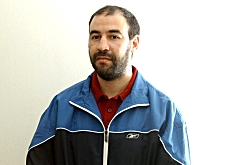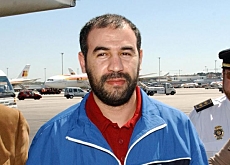Terror suspect case reveals poor collaboration

Switzerland needs to improve internal and international collaboration in the area of national security, a parliamentary sub-committee has recommended.
The team investigated the handling of the detention and eventual extradition to Spain of Madrid terror suspect Mohamed Achraf.
Achraf, who is believed to be Algerian, was arrested in Zurich in August 2004 for theft and immigration violations. But it wasn’t until October 2004 that the Swiss authorities realised the seriousness of the case.
On October 19, the Spanish justice minister informed the Swiss justice ministry that Achraf was a suspect in the plot to blow up the National Court in Madrid. The Spanish then submitted an extradition request.
The extradition went ahead on April 22 after the Federal Court rejected Achraf’s contention that he would be in physical danger should he be sent to Spain. The justice ministry had already approved the transfer in January.
Poor communication
The exchange of information between federal services throughout the affair left a lot to be desired and must be improved, the committee’s report said on Thursday.
The report showed that even minor oversights can have serious consequences when it comes to security and particularly in relation to terrorism.
It recommended the urgent improvement of the exchange of information between the analysis and prevention service (APS) and the federal police.
There was no communication between the two bodies before the Spanish justice minister contacted the Swiss justice ministry in October 2004.
Neither was there any exchange of information between the APS and another key intelligence body, the strategic information service.
This was despite the fact that the APS had received several requests for information about Achraf from its Spanish equivalent since the beginning of August 2004.
The following month the APS learned from checking with the different cantonal police forces that Achraf was in detention in Zurich.
Although the cantonal police were informed soon afterwards of the background of the suspect, the APS did not pass on the information to the other federal bodies.
The report calls for a solution that would allow Swiss security services to verify quickly and accurately if a person is in detention in Switzerland.
Underground
Achraf is accused of setting up a cell known as the “Martyrs for Morocco” while he served time in a Spanish prison for credit card fraud between 1999 and 2002.
More than 30 people, mostly Algerians and Moroccans, have been provisionally charged and jailed over the alleged plot since it was uncovered last October.
After his application for asylum was rejected in 2003, Achraf is believed to have gone underground, travelling out of Switzerland on several occasions.
He reportedly went to Spain with a suitcase of cash to recruit members for his group a month before his arrest in August 2004.
swissinfo with agencies
August 28, 2004: Achraf is arrested by Swiss police and transferred to a detention centre at Zurich airport.
October 19, 2004: Spanish police name Achraf as suspect in alleged plot to bomb the National Court in Madrid.
October 21, 2004: The Swiss federal prosecutor opens an investigation into Achraf’s alleged links to “terrorist activities”.
April 13, 2005: The Swiss Federal Court announces it has rejected Achraf’s appeal against his extradition to Spain.
April 22, 2005: Achraf is extradited to Spain.

In compliance with the JTI standards
More: SWI swissinfo.ch certified by the Journalism Trust Initiative











You can find an overview of ongoing debates with our journalists here . Please join us!
If you want to start a conversation about a topic raised in this article or want to report factual errors, email us at english@swissinfo.ch.